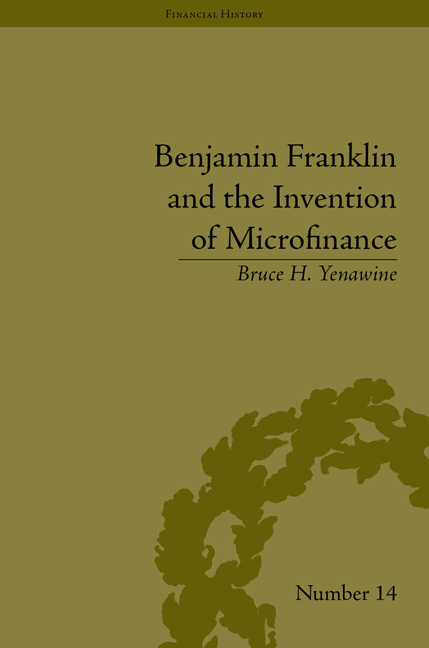Book contents
- Frontmatter
- CONTENTS
- Acknowledgements
- Biography of Bruce Yenawine
- Introduction
- 1 Franklin's Intent: The Autobiographical Origins of the Codicil
- 2 Franklin's Intent: The Sources of Political and Economic Concepts
- 3 Boston: The First Century
- 4 Philadelphia: The First Century
- 5 The Centennial in Boston and Philadelphia
- 6 Boston: The Second Century
- 7 Philadelphia: The Second Century
- 8 Bicentennial: Boston and Philadelphia
- Conclusion: Virtues in Conflict
- Appendix A Transcription of the 1789 Codicil
- Appendix B Boston Artisan List
- Appendix C Philadelphia Artisan List
- Appendix D Summary of Litigation and State Laws
- Appendix E Chronology
- Appendix F Franklin's Calculation and Actual Value
- Notes
- Works Cited
- Index
Introduction
- Frontmatter
- CONTENTS
- Acknowledgements
- Biography of Bruce Yenawine
- Introduction
- 1 Franklin's Intent: The Autobiographical Origins of the Codicil
- 2 Franklin's Intent: The Sources of Political and Economic Concepts
- 3 Boston: The First Century
- 4 Philadelphia: The First Century
- 5 The Centennial in Boston and Philadelphia
- 6 Boston: The Second Century
- 7 Philadelphia: The Second Century
- 8 Bicentennial: Boston and Philadelphia
- Conclusion: Virtues in Conflict
- Appendix A Transcription of the 1789 Codicil
- Appendix B Boston Artisan List
- Appendix C Philadelphia Artisan List
- Appendix D Summary of Litigation and State Laws
- Appendix E Chronology
- Appendix F Franklin's Calculation and Actual Value
- Notes
- Works Cited
- Index
Summary
Benjamin Franklin and his Founding Father contemporaries sought to sustain the liberty of the young American nation through promotion of virtues such as ‘thrift, industry, prudence, self-reliance, independence, and civic concern’. Franklin exemplified such virtues in his own life, through his publications and through his efforts to manage debt, organize credit, and build capital. In this regard, he created self-sustaining trusts that would produce ever-increasing capital to be used by the industrious to live virtuously and improve the quality of their cities and communities.
Specifically, in 1789, Benjamin Franklin added a codicil to his last will and testament. He bequeathed £2,000 sterling ($4,444) to Boston and Philadelphia and to the commonwealths of Massachusetts and Pennsylvania with explicit instructions as to how they should utilize and dispose of the sum over the course of two hundred years. The Franklin codicil funds were intended for loans to young married artisans (the class of manual workers who performed skilled trades) in order to help establish small businesses. In addition, when certain milestones were obtained, funds reverted to the cities of Boston and Philadelphia for public works.
While many loans were successfully made with the codicil funding, the managers of the Franklin Funds in both Boston and Philadelphia failed to continuously make loans to individuals as intended by Franklin for a variety of reasons. In this sense, they failed to continuously promote the value of industry as Franklin had envisioned. Courts were forced to intercede in order to command adherence to Franklin's original intent.
- Type
- Chapter
- Information
- Publisher: Pickering & ChattoFirst published in: 2014

